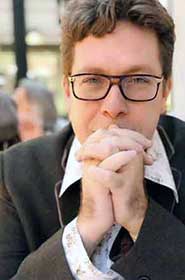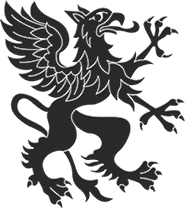Mark Malatesta – Developmental Book Editor – Former Literary Agent
 Mark Malatesta is a former literary agent, and the author of this free guide about Hiring a Book Editor. He has decades of experience helping writers improve their manuscripts: fiction, nonfiction, and children’s books.
Mark Malatesta is a former literary agent, and the author of this free guide about Hiring a Book Editor. He has decades of experience helping writers improve their manuscripts: fiction, nonfiction, and children’s books.
As an author coach and consultant, Mark Malatesta has led 400+ writers through the process of getting literary agents and/or traditional publishers. Prior to that, as a literary agent, he helped many more authors improve their books and find homes for them.
Part of Mark Malatesta’s role, first as a literary agent, and now as an author coach and consultant, is helping writers address issues and opportunities in their manuscripts. Understanding what agents and publishers might say, before you start querying them, can determine whether you go unrepresentated, Get a Literary Agent, or Become a Bestselling Author.
Mark’s author coaching and consulting company, The Bestselling Author, LLC, was established in 2011—and you can see Reviews of Mark Malatesta here.
Quotes About Book Editors – Mark Malatesta
These quotes from well-known figures underscore the relationship between authors and editors while emphasizing the art and craft of editing.
“Editing is the very edge of your knowledge forced to grow—a test you can’t cheat on.”
— S. Kelley Harrell
“You write to communicate to the hearts and minds of others what’s burning inside you. And we edit to let the fire show through the smoke.”
— Arthur Plotnik
“Every writer needs an editor. I don’t care how good you are or think you are.”
— Nora Roberts
“An editor is someone who separates the wheat from the chaff and then prints the chaff.”
— Adlai E. Stevenson
“The road to hell is paved with adverbs.”
— Stephen King (from On Writing, a common editor’s mantra)
“To write is human, to edit is divine.”
— Stephen King
“For me, editing is part of the writing process. I just consider it writing, and I don’t like to distinguish between the two.”
— Tim Cahill
“Editors are extremely valuable but largely invisible creatures: like frogs, the better they are, the less you notice them.”
— Ken Follett
“Throw up into your typewriter every morning. Clean up every noon.”
— Raymond Chandler (a nod to the importance of editing)
“The difference between the almost right word and the right word is really a large matter—it’s the difference between the lightning bug and the lightning.”
— Mark Twain
“If I waited for perfection, I would never write a word.”
— Margaret Atwood (reminding us why editors are so crucial)
“A good editor is a writer’s best friend.”
— Anonymous (commonly attributed within the publishing world)
“I don’t write a quick draft and then revise; instead, I work slowly page by page, revising and polishing.”
— Dean Koontz
“When rewriting, move quickly. It’s a little like cutting your own hair.”
— Robert Stone
“Most editors are failed writers—but so are most writers.”
— T.S. Eliot
“Editing is like killing your own story: you must murder the words, and it’s tough, but it makes for a better life for your work.”
— Chris Rose
“Editing might be a bloody trade. But knives aren’t the exclusive property of butchers. Surgeons use them too.”
— Blake Morrison
“There’s no great writing, only great rewriting.”
— Justice Louis Brandeis
“You know, a lot of people say the editor is the most important part of a magazine, and a good editor makes a good magazine, and a bad editor makes a bad magazine. And that’s absolutely true.”
— Graydon Carter
“Editing is simply the application of the craft to the art.”
— Anonymous
Mark Malatesta: Biography
Before Mark Malatesta became an author coach and consultant, he was a literary agent, literary agency owner, AAR (now AALA) member, and Marketing & Licensing Manager for the gift and book publisher Blue Mountain Arts. Mark’s writers have appeared on the New York Times bestseller list, sold millions of books, and are represented by some of the Best Literary Agents at the Top Literary Agencies.
Notable authors Mark Malatesta has worked with include:
- Leslie Lehr (A Boob’s Life), a memoir that’s being adapted for an HBO Max TV series by Salma Hayek
- Nelson Johnson (Boardwalk Empire), a New York Times bestseller, which Martin Scorsese produced for HBO
- Scott LeRette (The Unbreakable Boy), published by Thomas Nelson and now a major motion picture by Lionsgate, starring Zachary Levi, Patricia Heaton, and Amy Acker
In addition to being the creator of this guide about How to Hire a Book Editor, Mark Malatesta has written articles that have published in the Writer’s Digest Guide to Literary Agents, the Publishers Weekly Book Publishing Almanac, etc. Mark is also the host of Ask a Literary Agent, where he answers questions about writing, publishing, and promoting books. And he’s the creator of the Directory of Literary Agents.
Here you can see Mark Malatesta Reviews.
Book Editor Anecdotes and Success Stories
Here’s a list of anecdotes about book editors and/or working with them, drawn from the experiences of famous authors and the publishing world. These stories highlight the critical role editors play and the sometimes unexpected dynamics in the editor-author relationship:
- F. Scott Fitzgerald and Max Perkins
When F. Scott Fitzgerald submitted The Great Gatsby to his editor, Max Perkins, at Scribner’s, the manuscript was initially criticized for lacking focus. Perkins suggested cutting entire passages and reworking the structure. Fitzgerald followed his advice, and the result was a tighter, more impactful novel. Today, The Great Gatsby is a cornerstone of American literature—thanks, in no small part, to Perkins’s editorial guidance. - J.K. Rowling’s Harry Potter Edits
After being rejected by multiple publishers, J.K. Rowling’s manuscript for Harry Potter and the Philosopher’s Stone was finally accepted by Bloomsbury. Her editor, Barry Cunningham, made crucial suggestions, including simplifying certain elements for younger readers. He also recommended shortening the manuscript, ensuring it remained accessible. Rowling’s eventual global success proved the importance of those early edits. - Raymond Carver and Gordon Lish
The minimalist style that defines Raymond Carver’s short stories owes much to his editor, Gordon Lish. Lish’s heavy edits often cut Carver’s prose by half, creating a stark and dramatic tone. While Carver initially resented the extent of Lish’s revisions, stories like What We Talk About When We Talk About Love became iconic examples of modern American short fiction, largely shaped by Lish’s input. - Toni Morrison’s Path to Editing Genius
Before becoming a celebrated author, Toni Morrison worked as an editor at Random House. She championed Black voices in literature, editing works by Angela Davis and Muhammad Ali, and bringing marginalized stories to a broader audience. This editorial perspective deeply informed her own writing, earning her a Nobel Prize in Literature. - The Editor Who “Saved” Lolita
Vladimir Nabokov’s Lolita faced significant pushback due to its controversial subject matter. His editor, Walter Minton at G.P. Putnam’s Sons, defended the novel and fought for its publication. Minton’s faith in Nabokov’s literary genius allowed the book to reach readers, where it became a literary classic despite initial outrage. - Stephen King’s First Editor
Stephen King credits his first editor, Bill Thompson at Doubleday, with shaping Carrie into a publishable work. Initially, King threw the manuscript into the trash, feeling it wasn’t worth pursuing. Thompson retrieved it and provided the encouragement King needed. The book became King’s first published novel and a bestseller, launching his legendary career. - Margaret Mitchell’s Reluctance with Gone with the Wind
Margaret Mitchell was hesitant to share her manuscript for Gone with the Wind but finally handed it to Harold Latham, an editor at Macmillan. Latham saw the potential for a masterpiece and guided Mitchell through the revisions needed to refine the sprawling narrative. His persistence and vision helped transform the manuscript into a Pulitzer Prize-winning novel. - William Faulkner and the Editorial Cuts to Sanctuary
Faulkner’s novel Sanctuary contained graphic and shocking material, which his editor at Random House insisted on toning down. While Faulkner reportedly agreed to the edits reluctantly, the changes helped the novel achieve mainstream acceptance without sacrificing its impact. - James Joyce’s Battles with His Editor
James Joyce’s Ulysses was notorious for its complex language and structure. Editor Sylvia Beach of Shakespeare and Company, who first published the novel, worked tirelessly to prepare the manuscript for publication, despite its controversial content and endless complexities. Beach’s belief in Joyce’s talent paved the way for one of the 20th century’s most influential works. - Zadie Smith’s Tough Love from an Editor
When Zadie Smith submitted the manuscript for her debut novel, White Teeth, her editor, Simon Prosser, gave her candid feedback. Prosser encouraged Smith to cut sections and streamline the narrative, which Smith later acknowledged helped clarify her vision and made the book the critically acclaimed debut it became. - Agatha Christie’s Clever Editorial Collaboration
Agatha Christie’s editors often suggested changes to increase suspense and clarity. For example, in The Murder of Roger Ackroyd, Christie’s editor convinced her to make a minor adjustment to the story’s pacing that significantly amplified the twist ending—one of her most celebrated reveals. - Hemingway’s Precise Revisions with Maxwell Perkins
Ernest Hemingway worked closely with Max Perkins at Scribner’s, refining works like The Sun Also Rises and A Farewell to Arms. Hemingway respected Perkins’s judgment so much that he often wrote with his editor’s comments in mind, producing the clean, sparse prose that became his hallmark. - Elizabeth Gilbert’s Eat, Pray, Love
When Elizabeth Gilbert submitted Eat, Pray, Love, her editor advised her to simplify the narrative structure and focus more on her personal experiences. Gilbert credits this feedback with helping the book become a relatable and heartfelt memoir that resonated with millions of readers worldwide. - Harper Lee and Tay Hohoff
Harper Lee’s editor, Tay Hohoff, at J.B. Lippincott, played a crucial role in transforming Go Set a Watchman into To Kill a Mockingbird. Hohoff encouraged Lee to rewrite the manuscript from a different perspective, which ultimately resulted in the Pulitzer Prize-winning novel still taught in schools today. - J.D. Salinger’s Careful Collaboration on The Catcher in the Rye
Salinger worked closely with his editor, William Shawn, to refine The Catcher in the Rye. Shawn’s sensitive handling of the text preserved Salinger’s voice while tightening the prose, ensuring the novel became a cornerstone of modern literature.

 This guide about
This guide about 